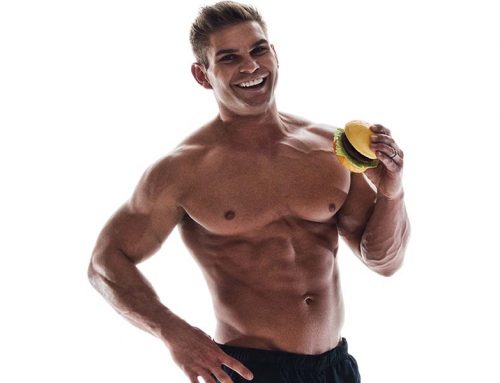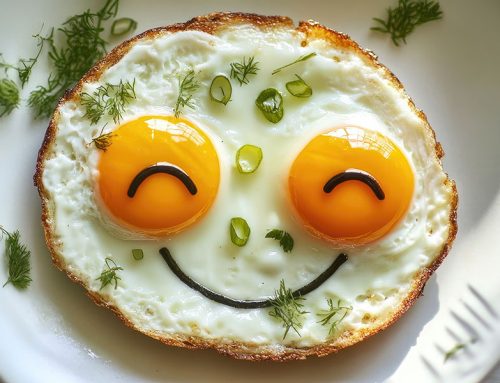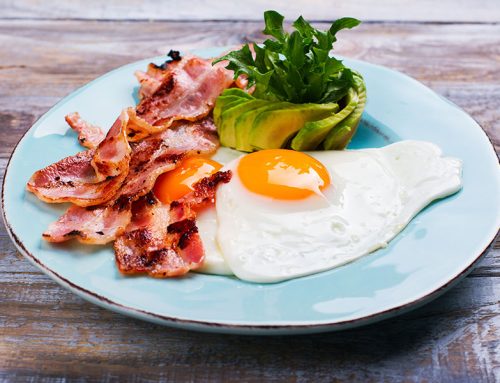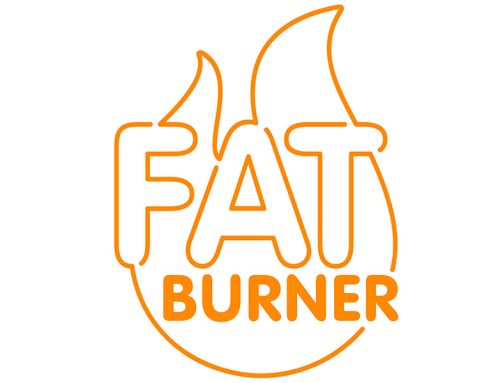Soy is a popular protein source for vegans. But is soy protein bad for you? Some people can’t eat it because they’re allergic to it. But even if you don’t have a food sensitivity, many people still aren’t sure if soy is healthy. The popular media gives soy protein a lot of bad press, often with sensationalist headlines.
Soy Protein And Estrogen
You may have read that soy is estrogenic, so it has a negative effect on male hormone levels. Obviously, that makes guys leery. It’s true that soy contains biologically relevant amounts of isoflavones.
These are compounds that bind to estrogen receptors and exert estrogen-like effects. (At least under certain experimental conditions). This is why they are classified as phytoestrogens. Genistein and daidzein are the two primary isoflavones in soy.
In menopausal women, clinical trials have shown there is no effect on many biological processes which are normally affected by estrogen. And in several studies, the inclusion of soy helped alleviate hot flashes.
Studies going back for years also found positive effects of soy on thyroid function and cholesterol levels.
Because estrogen is protective of bone, the effect of soy on bone health has also been studied. Early research suggested benefits, but subsequent investigations were conflicting, so whether this is a benefit of soy is still controversial.
Soy Protein And Testosterone
It’s men who have always had bigger concerns. Men of course, will be unanimous in agreeing that they’d prefer to avoid eating anything that could have a negative effect on their male hormone levels. But are naturally-occurring phytoestrogens really a problem?
One of the most cited studies was a meta-analysis published by Hamelton-Reeves in 2010 in the scientific journal Fertility and Sterility. The goal was to review all the relevant scientific literature to see whether the isoflavones in soy exert estrogen-like effects in men by lowering bio-available Testosterone.
Based on 15 different studies, no significant effects of soy protein or isoflavone intake were found on Testosterone, free Testosterone or sex-hormone-binding globulin SHBG.
Like most things in nutrition, it probably boils down to moderation. Getting most or all your protein from soy products, whether meat replacement products or powdered supplements, is not optimal. Eating a wide variety of protein sources and whole foods is a good way to ensure you avoid potential nutrient deficiencies or excesses.
In the meta-analysis, the authors mentioned that each gram of soy protein in traditional soy foods is associated with approximately 3.5 mg of isoflavones. As a reference point, they noted that intake among Japanese adults ranges from approximately 6 to 11 g of soy and 25 to 50 mg of isoflavones per day.
Today soy foods and concentrated soy supplements are more popular and widely available than ever before so much larger amounts can be easily consumed.
In the 15 studies included in the analysis, the soy came from a variety of different sources including soy milk, soy grits, soy flour, tofu, and isolated soy protein supplements, and also included a combination of traditional whole soy foods and processed soy foods.
The amount of soy consumption averaged around 30 to 40 grams per day with the highest amount being 56 grams per day.
Evidence That Soy Protein Lowers Testosterone? Should You Be Worried?
In that single study where 56 grams per day was consumed, serum testosterone was decreased over a 4-week period. However, this study, which has been quoted to suggest soy can lower Testosterone, had numerous flaws: no control group, methods of measurement not described, a small sample size, and the results of one single subject skewing the average results of the whole group.
As a result, the overall conclusion remained unchanged: “The consumption of soy foods or isoflavone supplements does not result in adverse effects associated with lower T levels.”
In yet another interesting study, Douglas Kalman and his group measured the effect of 50 grams of soy concentrate or isolate (25 grams two times a day) on lean mass compared to whey. They found the soy was equally effective as whey for increasing lean mass after 12 weeks of lifting weights.
This was surprising to many people because whey is usually considered a superior quality protein especially as it relates to muscle recovery and growth in response to resistance training. In addition, no significant differences were found between the groups in total Testosterone, free Testosterone and SHBG.
For people who are not vegan, whey protein is still the more commonly recommended protein supplement. Whey is still considered the gold standard, based on numerous tightly-controlled studies in both older and younger adults. However, at the minimum, these findings did not suggest negatives for soy, either for building muscle or maintaining male hormone levels.
What would happen if you consumed beyond 50 to 60 grams of soy per day? We don’t know, as it hasn’t been researched. But if you want to trust the science we do have, it appears that soy protein up to 50 grams a day, even in concentrated powdered supplemental form doesn’t look like it poses any health concerns in healthy people who lift weights.
So, is soy protein bad for you?
If the rest of your diet consists of a wide variety of healthy whole foods and a minimum of processed foods it looks like the worries many men had about soy were overblown.
It’s also worth noting that studies comparing pea protein and rice protein supplements to whey also came to similar conclusions with regards to supporting lean body mass. So between meat substitutes made from wheat gluten or soy and all the different kinds of plant-based protein powders now available, there are multiple options for vegans and people reducing meat intake to reach their protein goals.
If plant-based eaters also consume a lot of high protein whole plant foods such as lentils, black-eyed peas, quinoa, chickpeas, green peas, beans, buckwheat, and so on, getting enough protein and staying healthy should not be that challenging. For ovo-lacto vegetarians who don’t eat meat, but do eat eggs and dairy products, it’s a cinch.
Train hard and expect success!
Tom Venuto,
Founder & CEO, Burn the Fat Inner Circle
Author of Burn the Fat, Feed the Muscle
Author of The BFFM Guide to Flexible Meal Planning For Fat Loss
PS. Be sure to check out the newest e-book From Tom Venuto: The Guide To Flexible Meal Planning For Fat Loss

Tom Venuto is a natural bodybuilding and fat loss expert. He is also a recipe creator specializing in fat-burning, muscle-building cooking. Tom is a former competitive bodybuilder and today works as a full-time fitness coach, writer, blogger, and author. In his spare time, he is an avid outdoor enthusiast and backpacker. His book, Burn The Fat, Feed The Muscle is an international bestseller, first as an ebook and now as a hardcover and audiobook. The Body Fat Solution, Tom’s book about emotional eating and long-term weight maintenance, was an Oprah Magazine and Men’s Fitness Magazine pick. Tom is also the founder of Burn The Fat Inner Circle – a fitness support community with over 52,000 members worldwide since 2006. Click here for membership details
Scientific References
Hamelton-Reeves J et al, Clinical studies show no effects of soy protein or isoflavones on reproductive hormones in men: results of a meta-analysis, 94(3), 997-1007, 2010.
Forsythe W, Soy protein, thyroid regulation and cholesterol metabolism, 125(S3), 619S-623S, 1995.
Jenkins D et al, The effect of a plant-based low-carbohydrate (“Eco-Atkins”) diet on body weight and blood lipid concentrations in hyperlipidemic subjects, Archives of Internal Medicine, 169:11, 1046-1054, 2009.
Kalman D et al, Effect of protein source and resistance training on body composition and sex hormones, Journal of the International Society of Sports Nutrition, 4:4, 2007.






Leave A Comment